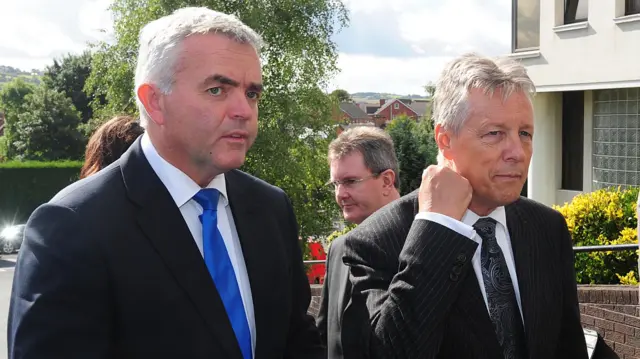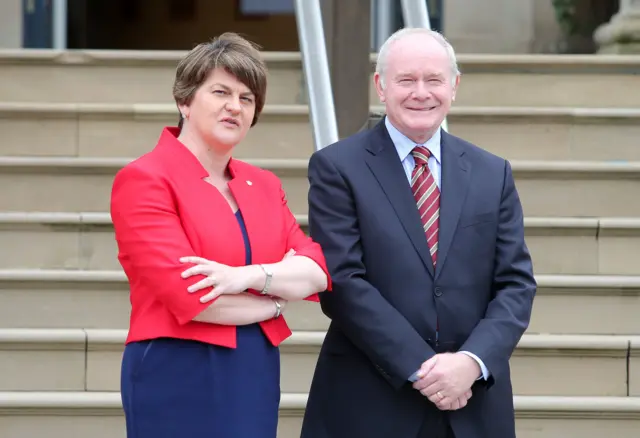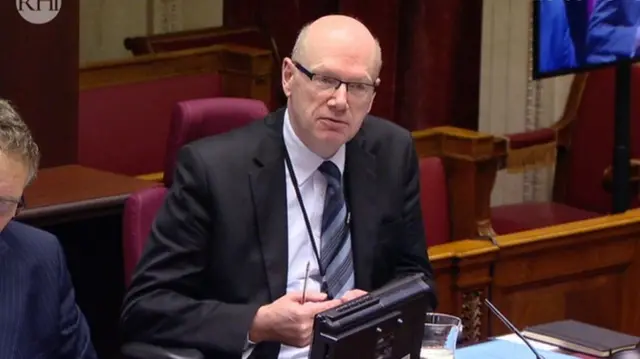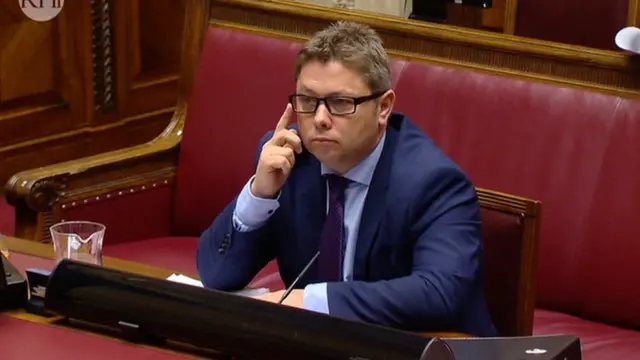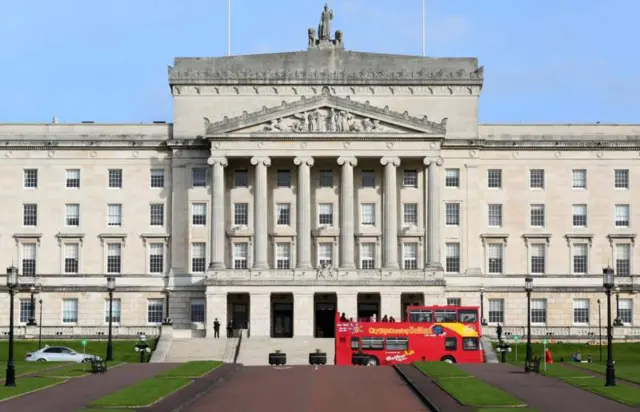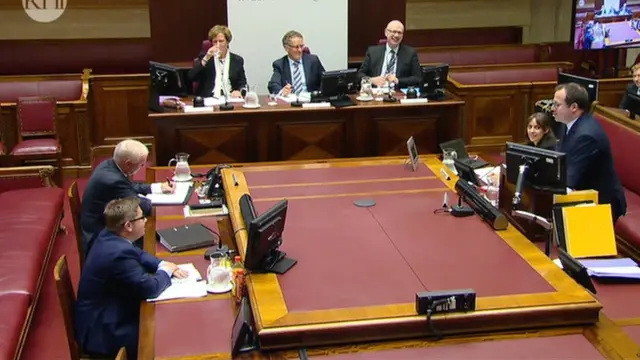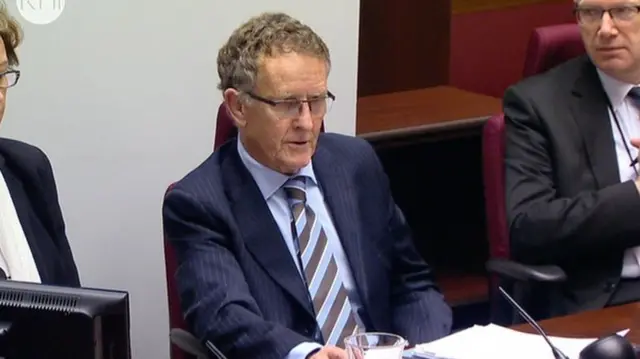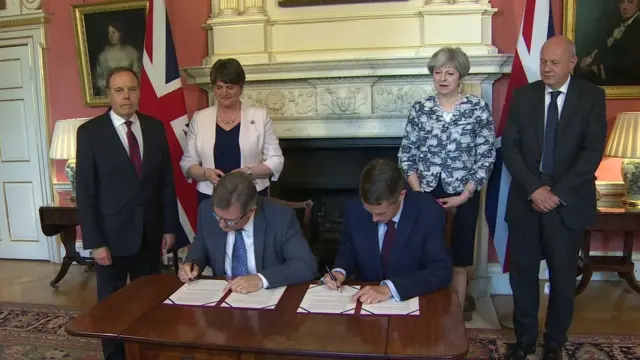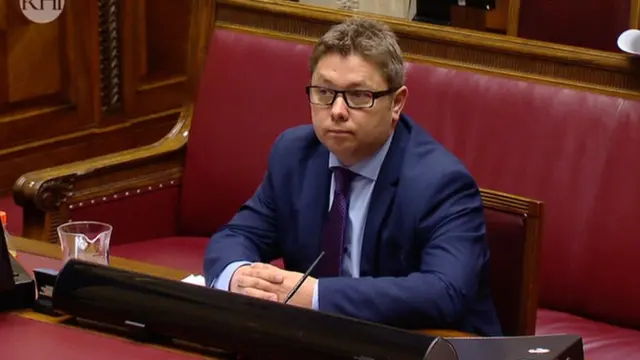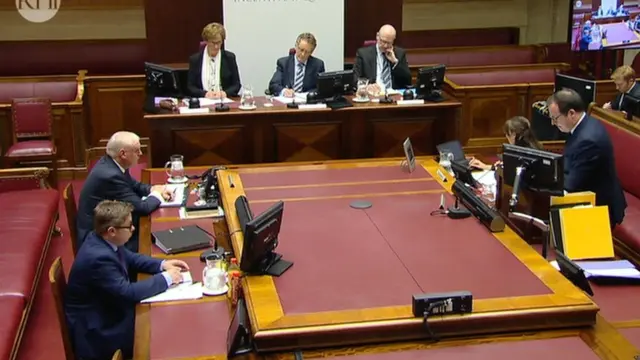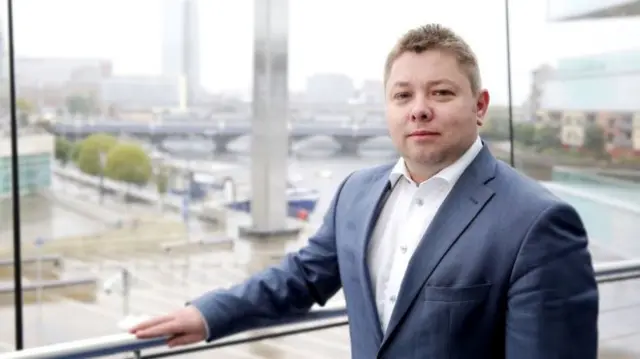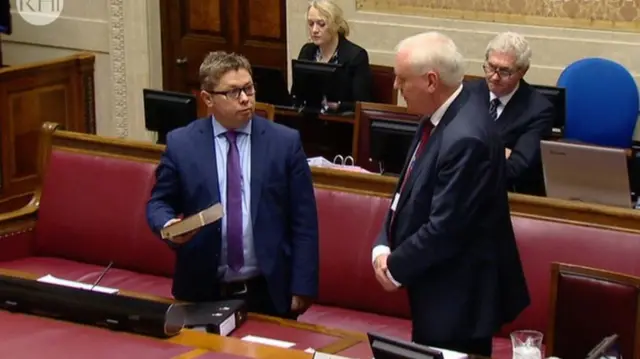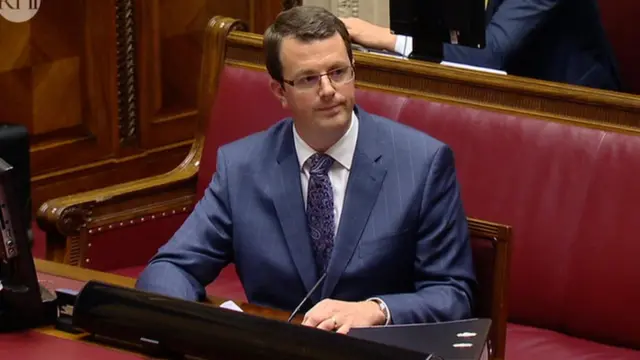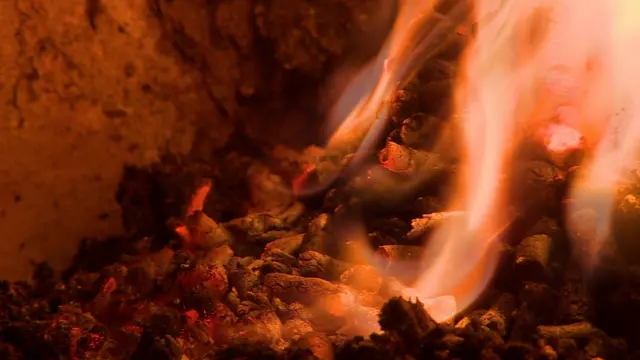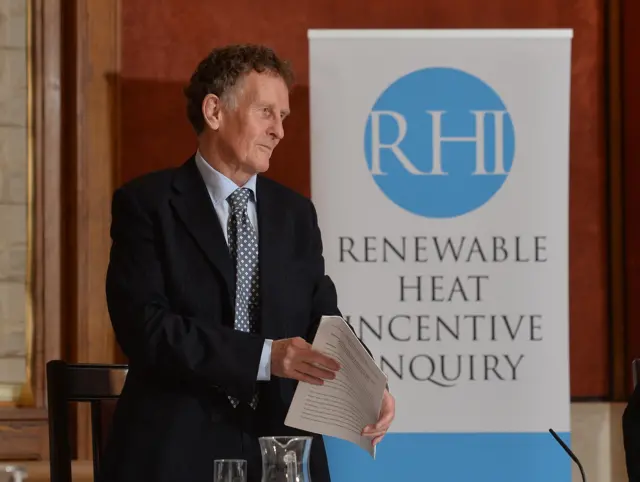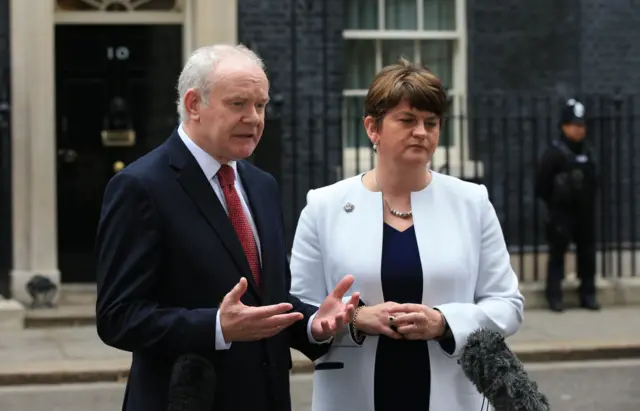'Foster would've dealt better with RHI'published at 11:52 BST 28 September 2018
Jonathan Bell was the minister responsible for the RHI scheme in the summer of 2015, when there was a delay in dealing with a civil service recommendation for action to address its spiralling costs.
Mr Johnston says he doesn't believe "we would be where we are today" if Mr Bell had not been given the top job at DETI.
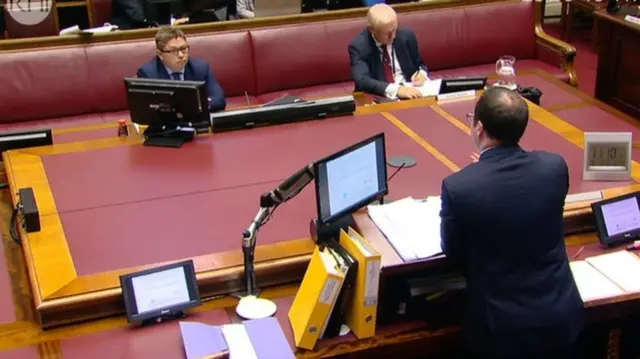 Image source, RHI Inquiry
Image source, RHI InquiryArlene Foster had been working at DETI for a considerable time and so had her adviser Dr Andrew Crawford, he adds.
Donal Lunny suggests that those who appointed Mr Bell in May that year could be said to bear some responsibility for what happened.
"I'm not sure that I would accept that," says Mr Johnston.
